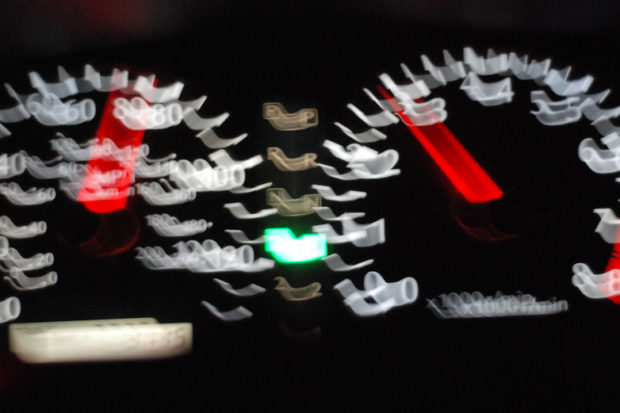

Glance at the Fresno Bee most days, and it becomes obvious that, despite Fresno’s standing as “the drunkest city” in the country, the local police department’s “DUI checkpoints” net way more cars than drunken drivers. Those cars, according to a lawsuit filed in federal court last year, represented “windfall” income of $1 million for the department between 2004 and early 2009.
A cursory review of the Bee reports also reveals that the majority of checkpoints target heavily minority areas. This falls in line with the findings of a California Watch report published in February 2010. That report found that statewide impounds at checkpoints in 2009 generated an estimated $40 million in towing fees and police fines—revenue that cities divide with towing firms. In addition, police officers received about $30 million in overtime pay for the DUI crackdowns, funded by the California Office of Traffic Safety.
In the course of its examination, the University of California Investigative Reporting Program reviewed hundreds of pages of city financial records and police reports, and analyzed data documenting the results from every checkpoint that received state funding during the past two years. Among the findings:
• Sobriety checkpoints frequently screen traffic within, or near, Hispanic neighborhoods. Cities where Hispanics represent a majority of the population are seizing cars at three times the rate of cities with small minority populations.
• The seizures appear to defy a 2005 federal appellate court ruling that determined police cannot impound cars solely because the driver is unlicensed. In fact, police across the state have ratcheted up vehicle seizures. Last year, officers impounded more than 24,000 cars and trucks at checkpoints. That total is roughly seven times higher than the 3,200 drunken driving arrests at roadway operations. The percentage of vehicle seizures has increased 53% statewide compared with 2007.
Law enforcement officials (including Fresno’s) claim demographics play no role in determining where police establish checkpoints. Although the analysis did not find evidence that police departments set up checkpoints to specifically target Hispanic neighborhoods, the operations typically take place on major thoroughfares near highways, and minority motorists are often caught in the checkpoints’ net.
The 2005 appellate court ruling includes exceptions, allowing police to seize a vehicle driven by an unlicensed motorist when abandoning it might put the public at risk. Examples include vehicles parked on a narrow shoulder or obstructing fire lanes. However, many of the vehicles impounded in Fresno do not fit that criteria. Drivers report having their legally and safely parked vehicles towed for no other reason than having been driven by an unlicensed driver. The Fresno police justify their towing policy, saying they are merely “community caretaking” by having the vehicle towed. However, this appears to violate the 2005 9th Circuit ruling, as well as a 2007 state appellate court decision.
The impound law granted police the authority to seize unlicensed drivers’ cars for 30 days. The California Attorney General’s Office said in a written statement that the state law is murky in terms of whether vehicles driven by unlicensed motorists can be taken at all. That law is currently being challenged in federal court. The 9th Circuit Court of Appeals is due to hear arguments later this year. Generally, police do not typically seize the cars of motorists arrested for drunken driving, meaning the owners can retrieve their
vehicles the next day, according to law enforcement officials elsewhere in the state.
Since 2007, the sales tax revenues of California municipalities have shrunk by $471 million, figures from the California State Board of Equalization show. Property values have collapsed too, causing financial woes at every level of government. “If a city wants to try to raise revenue, in mostly all cases you have to go to the voters,” said Daniel Carrigg, legislative director for the League of California Cities. Local governments, instead, are adding to fees for services and fines for an assortment of violations.
Fresno charges unlicensed drivers a fee to get their vehicles released from impound and also gets a $40 cut of the fees that towing operators charge vehicle owners. That money is used to finance police department operations.
The City of Fresno is frantically trying to get the local federal lawsuit dismissed. If William Solorazano is successful in his class action case, the city would have to refund millions of dollars to those whose cars the police department had towed. James Betts, representing the city, argued in a motion filed two months ago that Proposition 218 only applies to real property, even though the proposition clearly states that fees that exceed the cost of providing a particular program are subject to approval by the voters. Solorazano says the city is collecting fees well in excess of the cost.
The amount of money the city police are getting from the checkpoints begs the question: Is the Fresno Police Department more concerned with traffic safety or with preserving as much of the windfall as possible?
